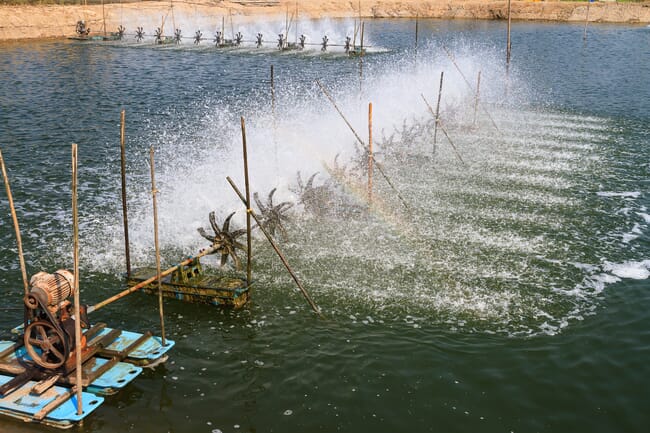
According to CAL, the Indian shrimp farming sector is riddled with problems
The report was published this week by Corporate Accountability Lab (CAL), which claims that its “multi-year field investigations and interviews provide some of the first documentation of the widespread abusive and dangerous labour and environmental practices in the Indian shrimp sector – including shrimp products certified to be socially and environmentally responsible by the industry’s Best Aquaculture Practices (BAP) and the Aquaculture Stewardship Council (ASC) certification programs.”
The report notes that Indian shrimp aquaculture is a multi-billion-dollar industry that relies on the US market, including supermarkets such as Costco, Kroger and Walmart, and restaurants such as Red Lobster that source shrimp from Sysco and US Foods.
“The report’s findings are meaningful because shrimp is the most consumed seafood in the United States, and India is the largest country supplier of shrimp to the US market, providing 40.8 percent of all shrimp imports in 2023,” CAL states in a press release.
“Human rights and environmental abuses in global shrimp aquaculture have been documented for over a decade. Yet, India – despite its huge market share – has remained under the radar. Indian shrimp have been considered a ‘low-risk’ source, even with telltale signs of abuse,” they add.
The report includes examples of workers subjected to debt bondage, verbal abuse, sexual harassment, hazardous working conditions, and company-restricted movement.
“Forced labour was common and even hazardous child labour was observed,” it claims.
The study describes the convoluted, informal supply chains make it difficult to trace the origin of Indian shrimp products, contributing to the persistence of labour and environmental abuses.
“Hatcheries, shrimp farms, and even processing sheds harm the local environment, polluting wastewater, contaminating drinking water, and displacing work for local farmers and fisheries. Shrimp farms are a leading cause of mangrove destruction, which sequester four times as much carbon as terrestrial forests,” notes CAL.
“In the absence of oversight and regulation from both the Indian and US governments, human rights and environmental abuses in the shrimp farming sector flourish, and fair-washing and green-washing certification schemes have entered the fray,” they add.




